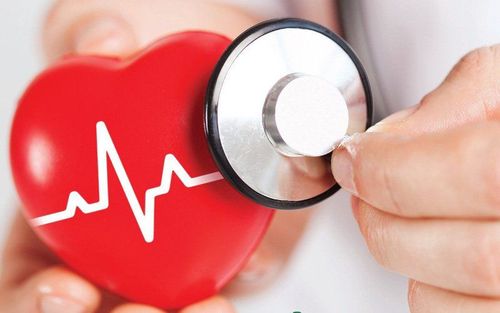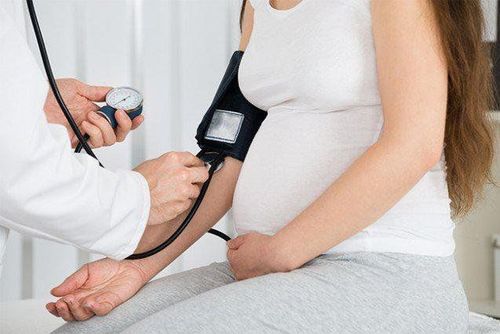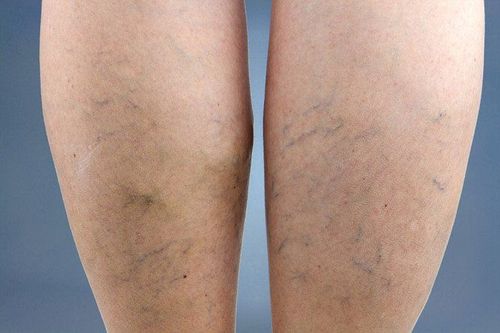This is an automatically translated article.
Swollen feet are swollen feet that increase in size, often appearing on the instep, ankle or lower leg. Leg swelling can be physiologically normal, but it can also be a sign of many dangerous diseases.
1. Swollen feet during pregnancy
In the last weeks of pregnancy, there may be swelling of the legs due to compression on the inferior vena cava, causing increased hydrostatic pressure to pull water out of the blood vessels, causing edema of the lower extremities. This is a very common condition during pregnancy. Swelling may increase later in the day or on summer days. After giving birth, this phenomenon will disappear automatically. However, if your legs are swollen during pregnancy with symptoms such as high blood pressure, headache, epigastric abdominal pain, little urination, nausea, .. you need to go to a medical facility to check. See if you have preeclampsia. Edema due to protein loss causes a decrease in intravascular oncotic pressure. Edema appears all over the eyelids, face, hands and feet.. This is a dangerous disease for both mother and child.
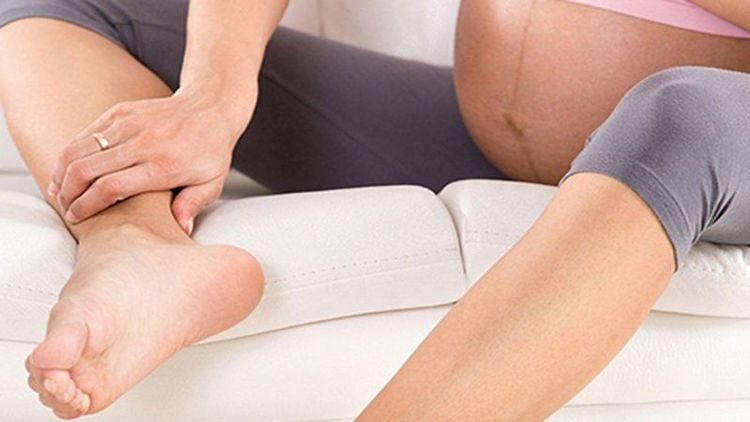
Phù chân thường xuất hiện vào những tuần cuối của thai kỳ
2. Leg edema due to right heart failure
Edema in right heart failure is caused by increased capillary hydrostatic pressure and increased fluid transport from the lumen into the interstitium. In addition, vascular damage leading to increased vascular permeability also causes edema. When right heart failure, blood will pool in the peripheral circulation causing swelling, edema of the legs. Edema in the 2 lower extremities at first may be generalized, edema increases when standing for a long time, increases in the afternoon, decreases edema at rest, in addition, accompanied by little urination.
3. Thrombophlebitis
When the body forms a blood clot, the area behind the blocked area will increase the pressure severely, forcing blood out of the veins into the tissues causing swelling, leg edema as well as life-threatening. People with high risk factors such as: obesity, smoking, heart failure, cancer, women who are pregnant or using oral contraceptives and those who sit a lot have a higher risk of forming blood clots.
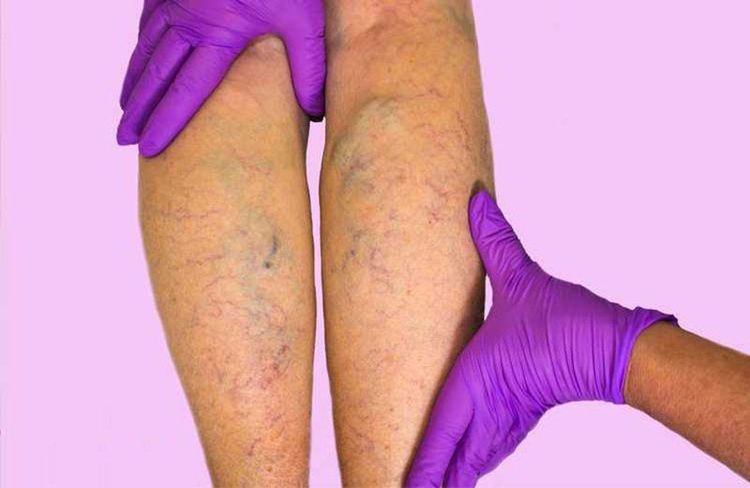
Viêm tắc tĩnh mạch khiến máu dồn vào các mô gây sưng chân
4. Liver disease
When you have cirrhosis, the liver can form scars, restricting blood flow to the liver, causing portal hypertension, causing leg edema and ascites. In addition, cirrhosis reduces albumin synthesis leading to a decrease in oncotic pressure causing edema.
5. Kidney disease
Albumin-deficient renal edema due to protein excretion in the urine leads to a decrease in oncotic pressure causing systemic edema.
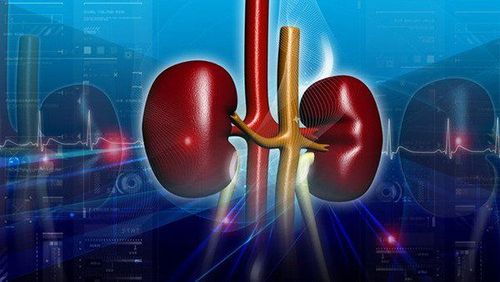
Phù thận cũng dẫn đến phù toàn thân
6. Leg edema due to obstruction edema
Extracellular fluid is formed from the blood by filtration through the capillary wall. Most of the fluid returns to the capillaries at a lower pressure, and some is collected in a separate conduction system called the lymphatic vessels. Lymphatic vessels return the fluid to the circulation at a pressure lower than that of the extracellular fluid.
Edema due to lymphatic obstruction is usually due to a blockage of the lymphatic drainage ducts that are not absorbed into the blood vessels, usually due to parasitic infections such as filariasis, lymphatic obstruction in the lower extremities, causing the patient's legs to swell to the size of a leg. elephants.
7. Varicose veins of the lower extremities
Varicose veins of the lower extremities is a state of impaired function of the veins, the ability of the veins to return blood to the heart is poor, leading to blood stagnation in the extremities causing varicose veins in the lower extremities. aches, pains, heavy legs, leg edema, paresthesias, crawling ants, night cramps... The disease can lead to complications causing leg ulcers, broken blood vessels, thrombophlebitis, and thrombophlebitis. deep vein thrombosis, dilated superficial veins...
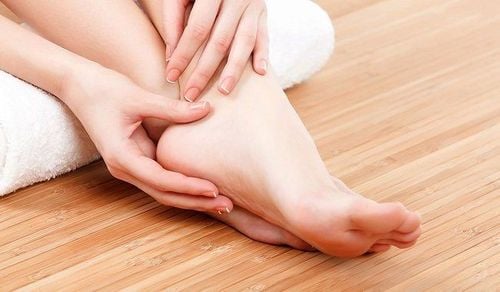
Suy giãn tính mạch chi dưới dẫn tới triệu chứng nhức mỏi về đêm
8. Other causes
Swollen feet in hot weather Feet can swell in hot weather because the veins dilate to cool themselves. However, veins may not be able to carry blood back to the heart, leading to fluid buildup in the ankles and feet.
Swollen feet from drinking alcohol Drinking alcohol can make your feet swell because your body retains more water after drinking. Usually the swelling goes away within a few days. 5. Foot edema due to trauma
Foot swelling due to injury When injured in the leg such as fracture or sprain, there will be swelling and inflammation at the injury site.
Vinmec International General Hospital is one of the hospitals that not only ensures professional quality with a team of leading medical doctors, modern equipment and technology, but also stands out for its examination and consultation services. comprehensive and professional medical consultation and treatment; civilized, polite, safe and sterile medical examination and treatment space.
Customers can directly go to Vinmec Health system nationwide to visit or contact the hotline here for support.





